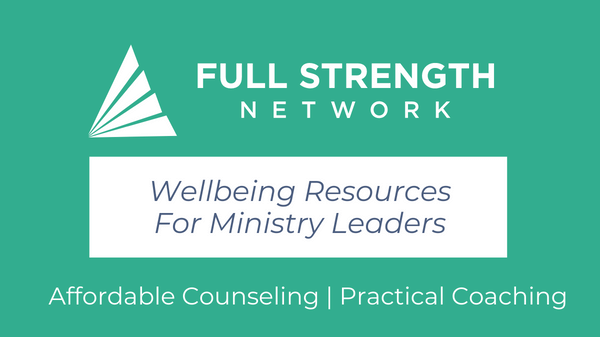
If you own property, protecting your investment with property insurance is essential. However, insurance can be costly, especially when done incorrectly. The good news is that you can reduce your property insurance costs in several ways.
Let’s talk about some of these strategies.
Understanding Property Insurance
Before diving into how to reduce property insurance costs, let’s first understand the basics of property insurance. Property insurance provides financial protection for sudden and accidental events like fire, theft, or natural disasters. It is not a maintenance policy. It does not cover wear and tear. It covers the structure of your property and your belongings inside the structure.
Property insurance is an essential safeguard for homeowners and property owners alike. It provides peace of mind. Even if you’re not losing sleep over property insurance coverage, property insurance makes the most financial sense to protect yourself against losses. Budgeting a manageable annual expense for insurance is much easier than $1,000,000 for a catastrophic claim that happens every 100 years.
But how exactly is the cost of property insurance determined? Let’s explore the factors that influence insurance premiums and how understanding these factors can help you make informed decisions to reduce your insurance costs.
Factors That Influence Property Insurance Costs
Here are some of the main factors that influence property insurance costs:
- Location: Companies consider proximity to bodies of water, crime rates, earthquake zones, flood zones, and other factors. They build actuarial models to predict the likelihood of a claim based on your location.
- Building Materials: The type of construction materials used in your property affect insurance costs. Insurance companies typically offer low rates for concrete and masonry buildings than wood or steel.
- Security Measures: Security features such as alarm systems, water flow sensors, and surveillance cameras can lower your insurance costs by reducing the risk of theft or damage. They can help reduce the likelihood of common claims like burglary, pipe bursts, and vandalism.
- Claims History: Your past claims history impacts your insurance premiums. Customers that have numerous claims are more likely to have a large claim. Insurance companies use this history as an insight into your operations and the likelihood you will have future claims.
By understanding these factors and their influence on property insurance costs, you can make informed decisions to protect your property while keeping your insurance premiums manageable. Reviewing your coverage regularly and exploring potential discounts or savings opportunities offered by insurance providers is essential. Remember, property insurance is not just a financial obligation but a valuable investment in safeguarding your most valuable assets.
Now that we know how an insurance company determines their rates for you, here are strategies for reducing costs
9 Strategies for managing property insurance costs
1. Evaluate the values on the policy
The amount of insurance you buy will directly influence how much you pay for insurance premiums. Start by ensuring the amount of coverage you buy is right-sized for your organization. Sometimes, your building value is higher than it should be. Other times, the value of your contents (the stuff stored in your buildings) is unnecessarily high. In either situation, the policy will cost less if you buy less coverage.
However, don’t go too far. It’s vital to insure your properties to their correct value. If you have a total loss, it is unlikely you will ask what the premium is, you will ask if you had enough insurance coverage.
2. Double-check the protection class
Protection class is an insurance industry term that describes the proximity of your building to both a water source and a fire department. If you see a protection class 9 or 10 on your policy, the insurance company thinks your property is not within 1,000 feet of a fire hydrant or 5 miles of a fire department. If the insurance company believes your building is more likely to burn down, they will charge more money.
3. Make sure the construction type is correct
I mentioned earlier in the article that companies will offer better rates for buildings built with more fire-resistant materials. This means that it can pay off to have a building constructed with masonry blocks or concrete. Double-check that the program is showing the correct materials.
4. Ensure the underwriter knows about your fire alarms, burglar alarms, security systems, and water flow sensors.
Companies like it when customers invest in systems that will lessen their likelihood of a loss. Sometimes, there are automatic discounts, but not always. For example, some companies will credit policyholders with a centrally monitored fire or burglar alarm system. They may not do the same thing for a video surveillance system. Even if there aren’t automatic credits, it’s important to let the underwriter know. These systems cost money, they make claims less likely, and they can garner additional pricing considerations.
5. Make sure the occupancy of your building is accurate.
Insurance companies offer different rates based on who occupies the building. For example, it makes sense that a fireworks manufacturer is more likely to experience a fire than a florist shop. Make sure that the insurance company isn’t using an occupancy that factors against you.
6. Choose a deductible that makes sense
The value of a dollar has changed over time. Some companies with large budgets still carry $1,000 deductibles. Choose a property deductible that makes sense for you. If you only need insurance if the claim is more than $5,000, choose a $5,000 deductible. Higher deductibles will reduce the premium.
7. Manage your claims history
Your claims history is one of the best predictors of future claims activity for an underwriter. Underwriters look at how many claims you have had and the size of these claims. Accounts with numerous claims indicate underlying housekeeping issues. If you want an insurance company to give their best offer, you have to make them believe they will make money by insuring you.
8. Manage your insurance history
Companies review where you have had your insurance over the last several years. They also check if you pay your bills on time. Customers who keep their insurance in one place and pay their bills on time may not always have perfect claims history. However, customers that move their insurance around, have lapses in coverage, and don’t pay on time, almost always perform poorly compared to their peers.
9. Review your insurance regularly
The insurance marketplace changes as regularly as the stock market. Company appetites change. Some companies perform better than others and are willing to be more aggressive with their offers. Approaching the insurance marketplace every few years helps to keep your current company accountable. An independent agent familiar with your business can help you do this.
In Conclusion
There are many ways to manage property insurance costs without taking unnecessary risks. Many of the ideas in this article may require an expert’s help. It’s essential to have a qualified insurance agent to assist you with your buying process. They can help you identify what makes your organization appealing to an insurance company. If you can successfully highlight the facts that make your operations a better risk, it will pay off in lower insurance premiums.
Further Reading

Ladder-Related Laws Program Guide
Bitner Henry Insurance Group provides this free guide to OSHA's ladder-related laws. This guide covers: Minimum procedures for the selection,...

Full Strength Network: Wellbeing Resources For Ministry Leaders
Church leaders and staff often bear the burdens of others but sometimes, their own needs can be overlooked and neglected. According to Barna, 1/3rd...
